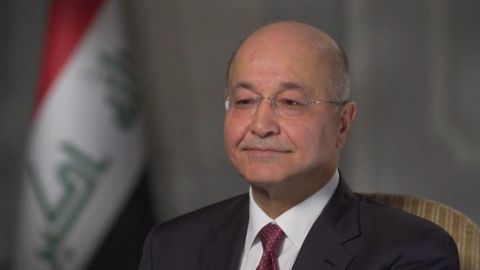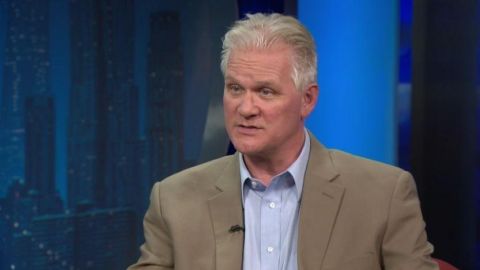Read Transcript EXPAND
CHRISTIANE AMANPOUR: I mean, you’re a lawyer and you heard that government lawyer stumbling through a particularly easy question to ask. I mean, doesn’t that really sum up why there are this terrible, terrible — this terrible situation going on, if they can’t agree on a definition of what is safe and sanitary?
WARREN BINFORD, PROFESSOR OF LAW, WILLAMETTE UNIVERSITY: Yes, I think that’s right. And that’s why we are offering to both the congressional leaders and to the White House that we will bring together a team, pediatric experts, to sit down with them and try and come up with a bipartisan definition of a safe and sanitary conditions for these children so that we can ensure that this never happens again.
AMANPOUR: Now, in the wake of your visit to Clint and the lawyers, you know, your team of colleagues, there’s obviously been outrage that shocked people all over the United States and there was, we thought, some sort of redress when, yesterday, 250 of these children were removed from that particular facility. Then we hear a hundred of them have been moved back. Can you describe what is going on there and why that would be the case?
BINFORD: I have no idea why that would be the case. The situation with these children is that most of them have family in the United States. If you look at the population of children who are kept in these facilities last year, 86 percent of them had parents, family members, other sponsors here in the United States. So, these children don’t even need to be there. There are only about 14 percent of these children that need to be in the government’s care. And for those 14 percent of the children, we need to have standards set about what is safe and sanitary means. For the other 86 percent of these children, they need to be returned to their families so that their families can care for them and make sure they are fed, they are clean and that they are treated with the appropriate level of love and care that each child deserves.
AMANPOUR: Warren Binford, describe for me some of what you saw and how you even got access to these facilities?
BINFORD: Well, Christiane, we have access to these facilities through the Flores lawsuit, which was a lawsuit brought in the 1980s to make sure that children who were in government custody were properly cared for. And so, for the last 20 years, we have had teams of experts going to these facilities and then reporting back to the court what they are hearing from the children. So, we have never gone to the media before because, really, these inspections are intended to inform the court. However, what happened this time is that we walked in those facilities, which is only intended for 104 adults, and this is a border patrol facility, which are notoriously squalid and not appropriate for children at all. And they handed us the roster of children who were on site that day and there were over 350 children in this border patrol station. So, we were horrified.
About This Episode EXPAND
Christiane Amanpour speaks with Barhak Salih about Iraq’s relationship to tensions between Iran and the U.S. Warren Binford joins the program to discuss living conditions at an immigrant detention facility in Texas. Hari Sreenivasan speaks with Frank Langfitt, author of “The Shanghai Free Taxi.”
LEARN MORE


